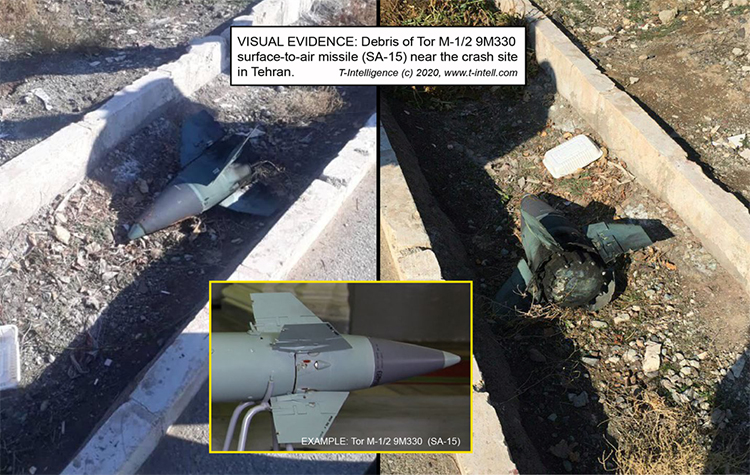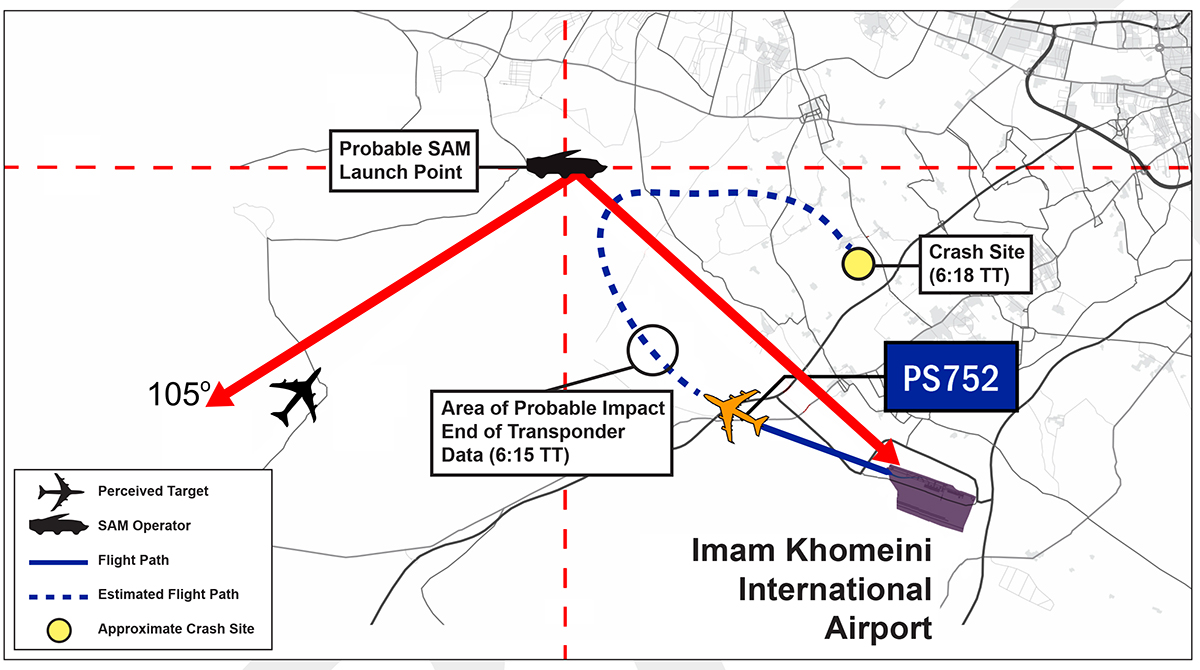Iran continues to neglect Ukraine’s claims and recommendations concerning compensation for the tragic incident involving Ukraine International Airlines (UIA) flight PS752 in 2020, reported the Ukrainian Foreign Ministry.
Ukraine said that representatives from Ukraine, Great Britain, Canada, and Sweden, constituting the International Group for the Coordination of Assistance to Victims of Ukraine International Airlines (UIA) flight PS752, engaged in discussions with Iranian authorities concerning the accountability for the tragic incident involving the downing of flight PS752 on January 8, 2020.
According to the press release, the Coordination Group is committed to the peaceful resolution of conflicts and has been actively working towards resolving this issue since 2020 through multiple negotiation attempts.
Finally, in September 2023, Iran consented to meet with all members of the Group for discussions. As a result, representatives from the four members of the Coordination Group convened with Iranian officials this week to address Iran’s state responsibility for the tragic downing of Flight PS752.
The Coordination Group emphasized that their discussions centered on Iran’s accountability for breaching international law and the imperative for Iran to provide full reparations to address the harm caused by the downing of Flight PS752. To the group, “full reparations” encompass more than just monetary compensation.

“The Coordination Group regrets that Iran remains unwilling to engage meaningfully with our position and continues disregarding our claims. Based on the discussions, which took place this week, the Group considers that our respective positions are too far apart to be reconciled through negotiations,” the Group added.
Therefore, the Group declared that the Coordination Group will persist in taking steps to address this dispute in compliance with international law, which may include seeking recourse at the International Court of Justice.
Besides the nine Ukrainian crew members, 167 passengers were on board, comprising 82 individuals from Iran, 63 from Canada, three from the United Kingdom, four from Afghanistan, ten from Sweden, and three from Germany.
Ukraine International Airlines (UIA) Flight PS752
On January 8, at 06:12 local time (02:42 GMT), Ukraine International Airlines flight PS752 departed from Imam Khomeini International Airport, Iran. Within six minutes of its departure, the plane descended rapidly towards the ground, with flames emanating from its fuselage.
It struck the ground before erupting into a fiery explosion, leading to the complete disintegration of the aircraft and the heartbreaking loss of all 176 lives on board.
The aircraft’s black boxes, which document flight data and cockpit audio, were retrieved from the wreckage. Initially, the Tehran government claimed that the UIA aircraft encountered a technical issue shortly after departing.
Iran’s statement referenced witnesses, including the crew of another passenger plane, who claimed to have seen the aircraft on fire before it crashed. At the time, some reports also indicated that mechanical diggers were dispatched to the crash site before international investigators had a chance to arrive.
This raised suspicions that evidence might have been tampered with or intentionally destroyed. Furthermore, the timing of the accident, occurring just hours after Iran had launched missiles at US targets in Iraq, led to speculation about alternative potential causes.

Experts promptly raised questions about the assertions made in Iranian state media, which suggested that the crash might have been due to an engine fire. Typically, commercial aircraft are built to withstand engine failures and execute safe landings as part of their standard design.
Confronted with increasing evidence contradicting their previous statements, Iranian authorities eventually acknowledged that an Iranian air defense team had shot down the passenger jet using two Russian-made missiles.
The Iranian military contended that the plane’s downing resulted from “human error,” as the aircraft had ventured near a “sensitive site” under the jurisdiction of Iran’s Revolutionary Guards Corps.
An Iranian General alleged that the Iranian operator, having misidentified the Boeing as a “cruise missile,” attempted communication and waited for 10 seconds, ultimately choosing to open fire.
The final report of the Iranian Flight PS752 Accident Investigation confirmed that the responsible air defense unit that downed Flight PS752 was identified as an SA-15 Gauntlet, also referred to as a Tor M1.
In April 2023, in a trial conducted by the Tehran Military Court, 10 lower-ranking officers associated with the downing of the aircraft were prosecuted, resulting in sentences ranging from one to three years for disciplinary infractions.
The missile operator received a 13-year sentence for criminal negligence leading to loss of life. However, the four countries, Ukraine, Great Britain, Canada, and Sweden, released a statement expressing their skepticism, as they believed that the trial lacked transparency, with names and evidence withheld, characterizing it as a “sham trial.”
- Contact the author at ashishmichel(at)gmail.com
- Follow EurAsian Times on Google News




